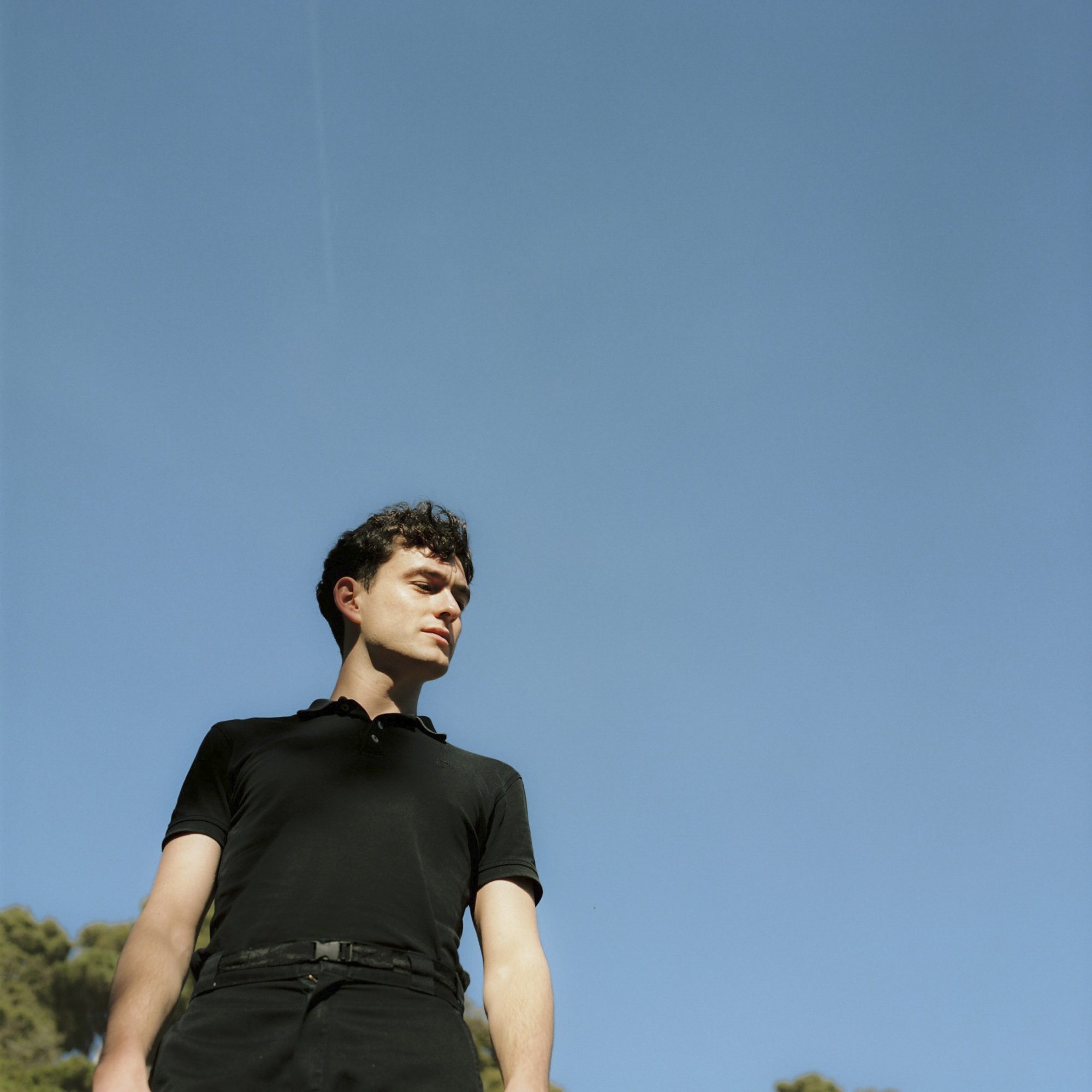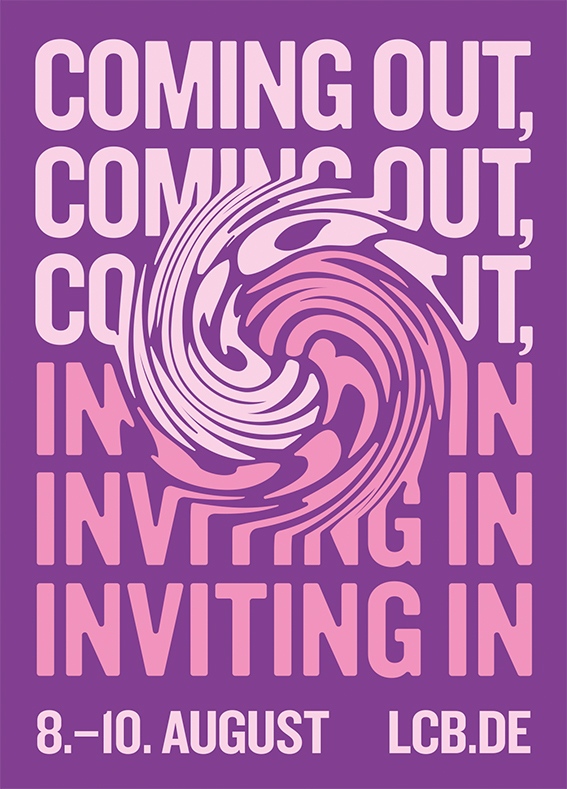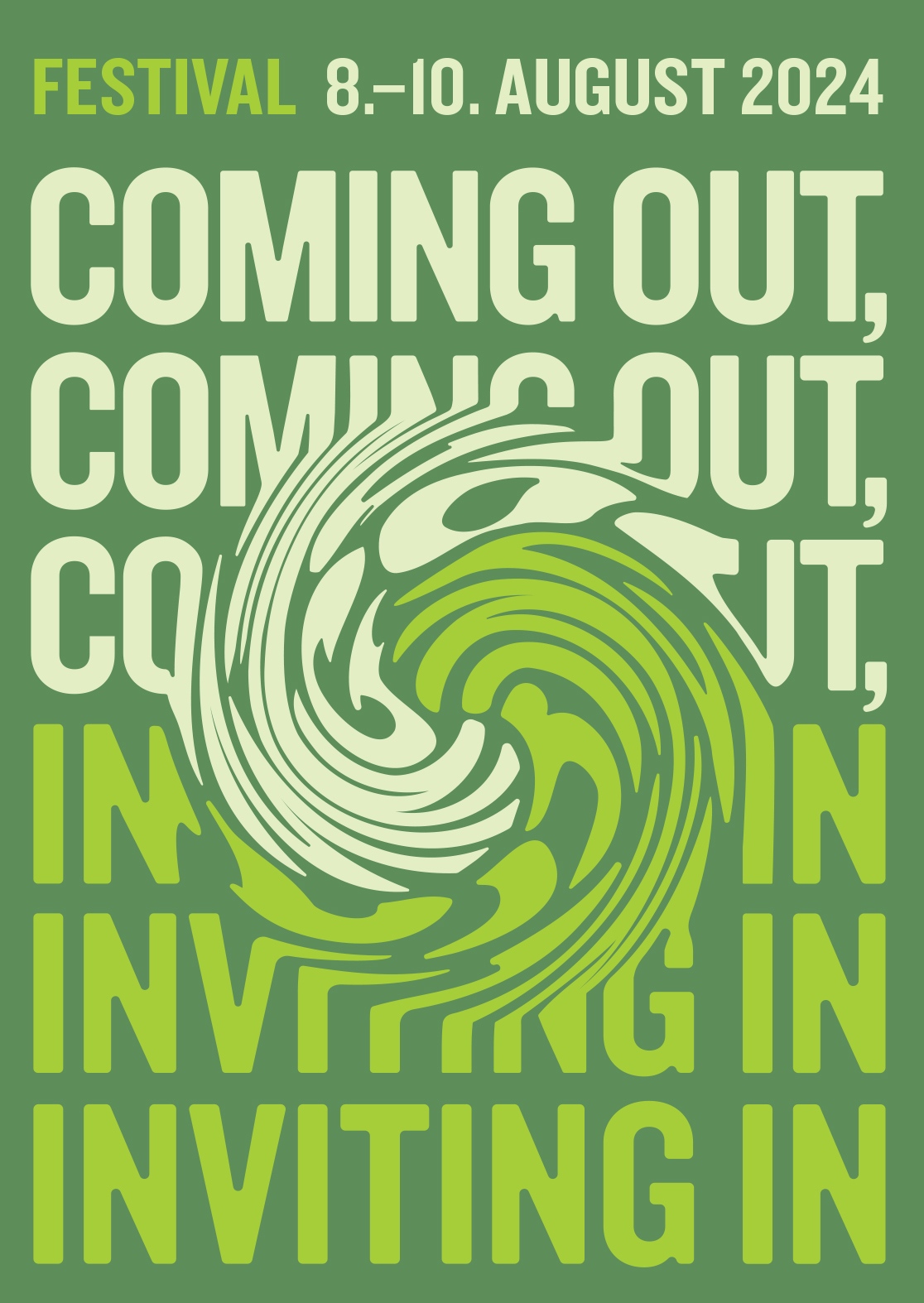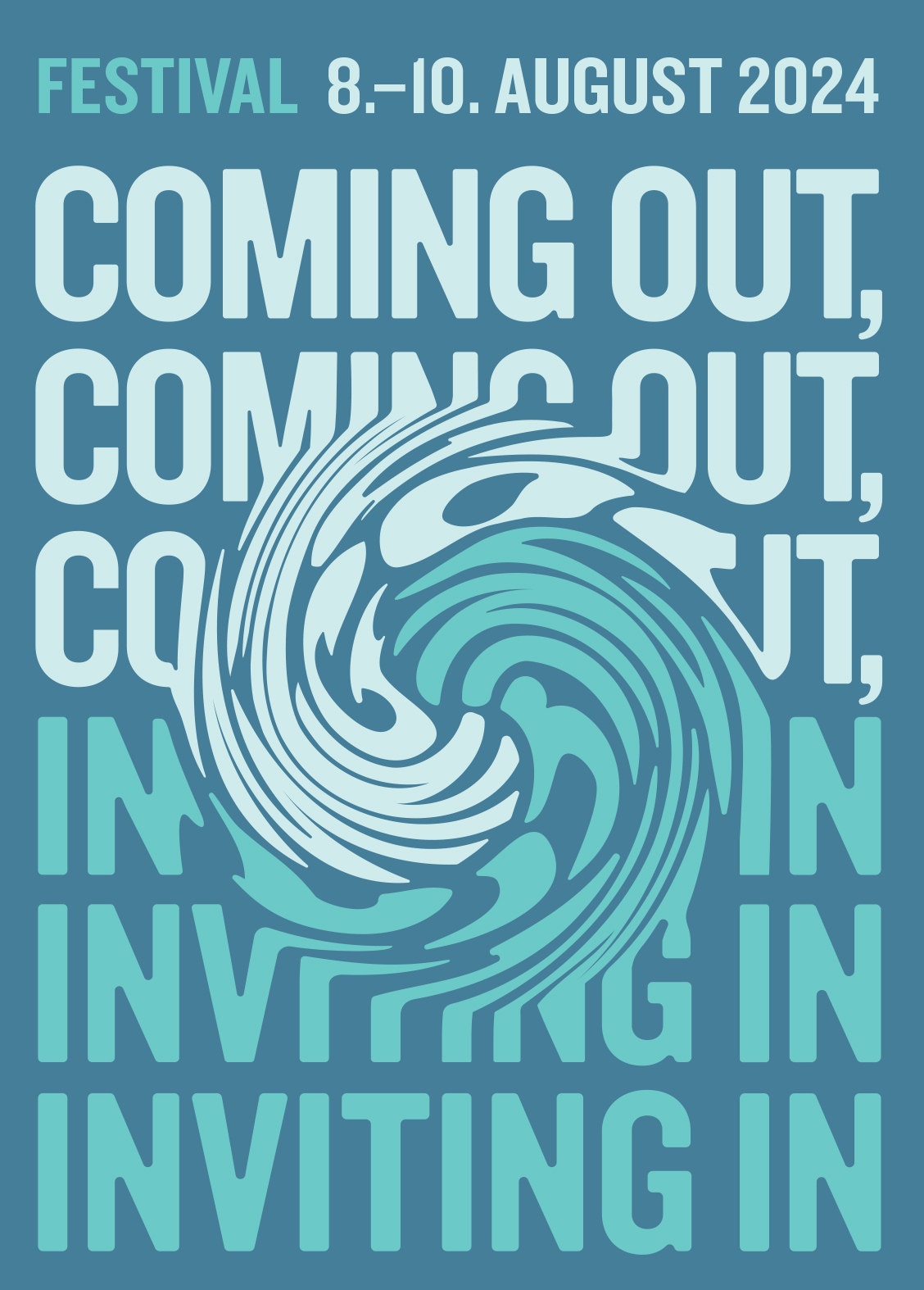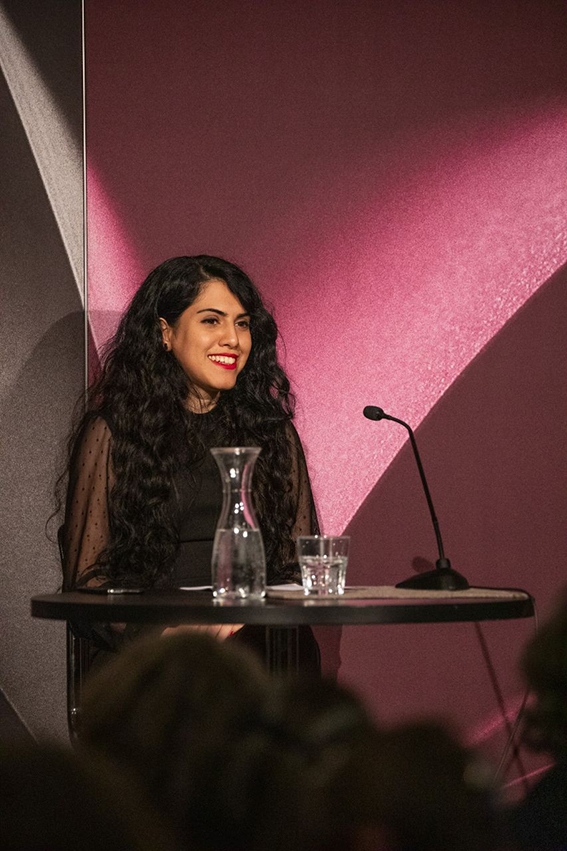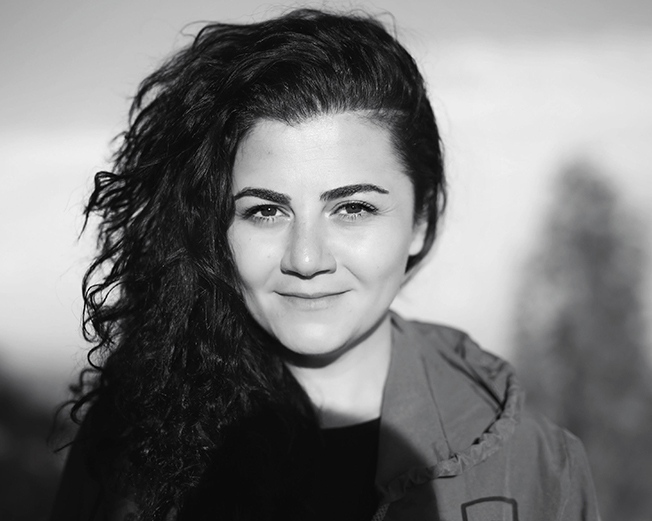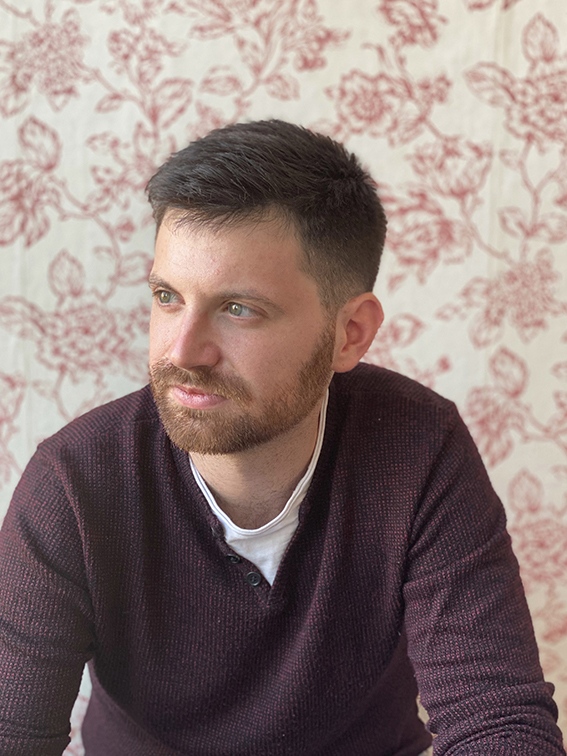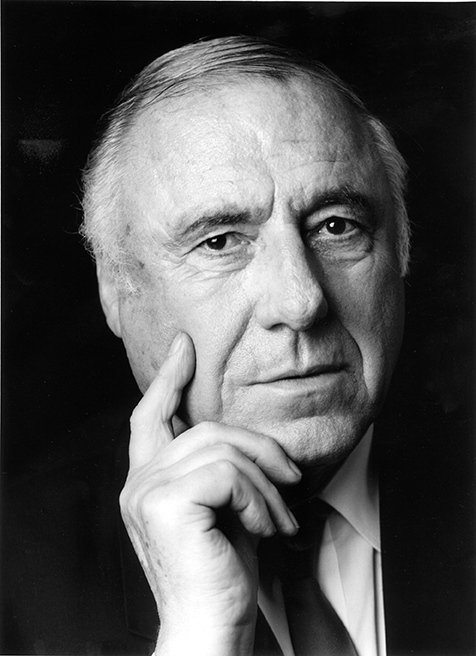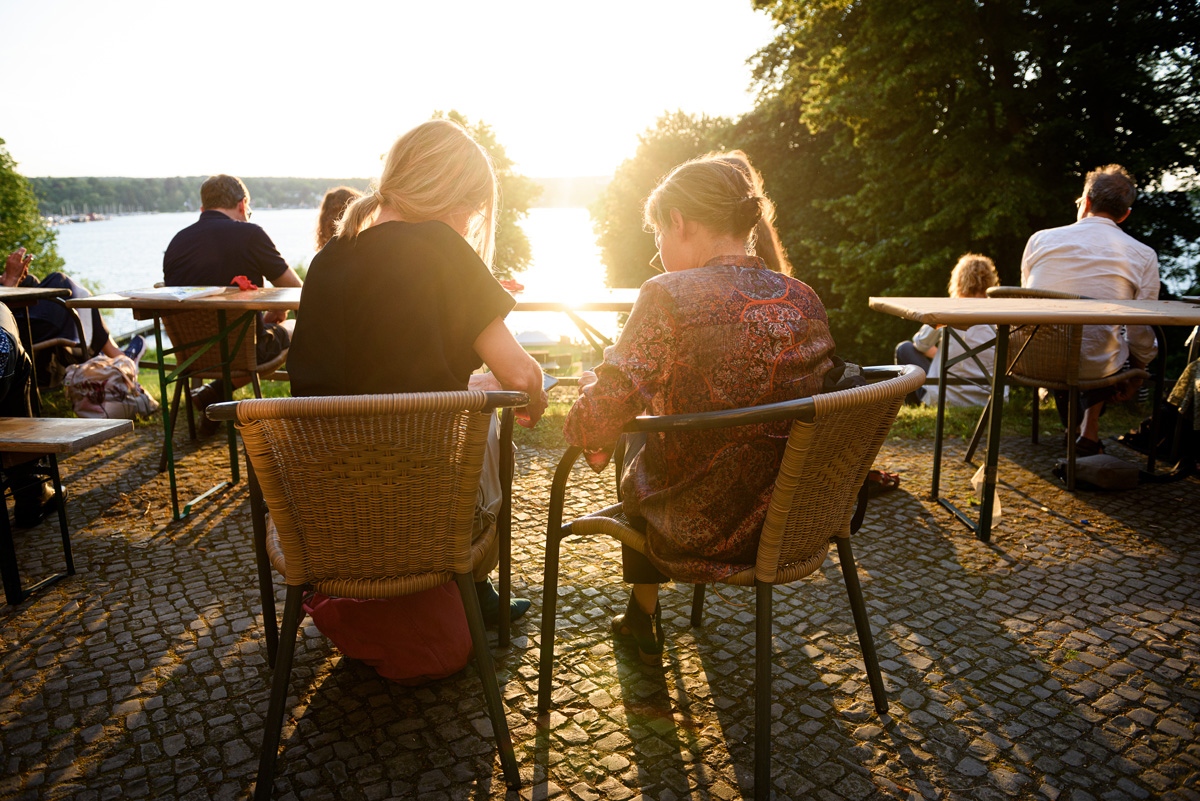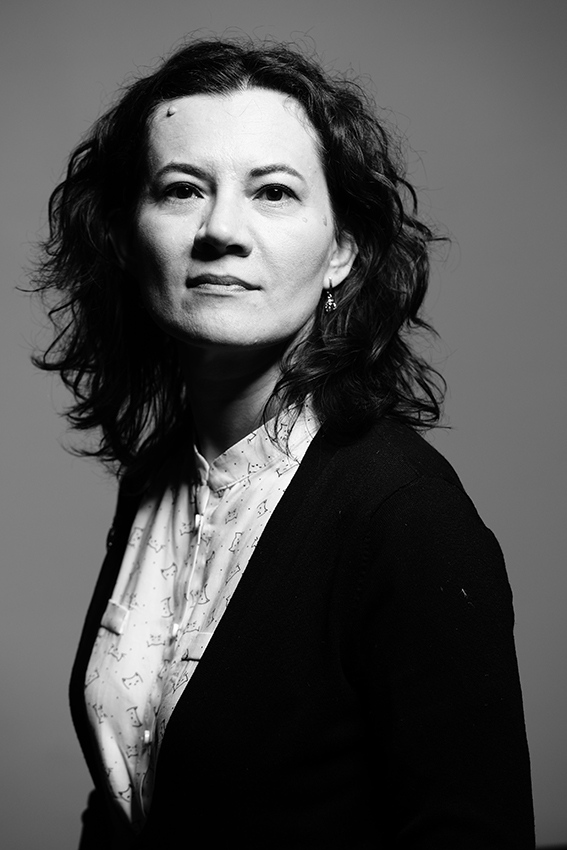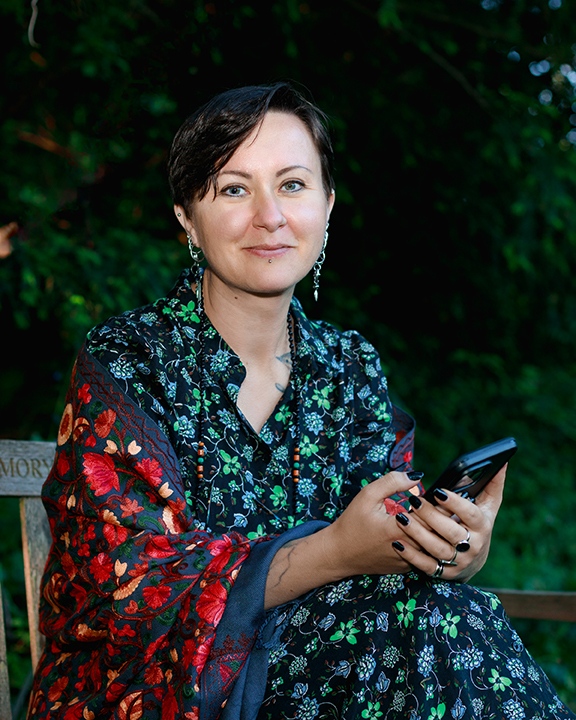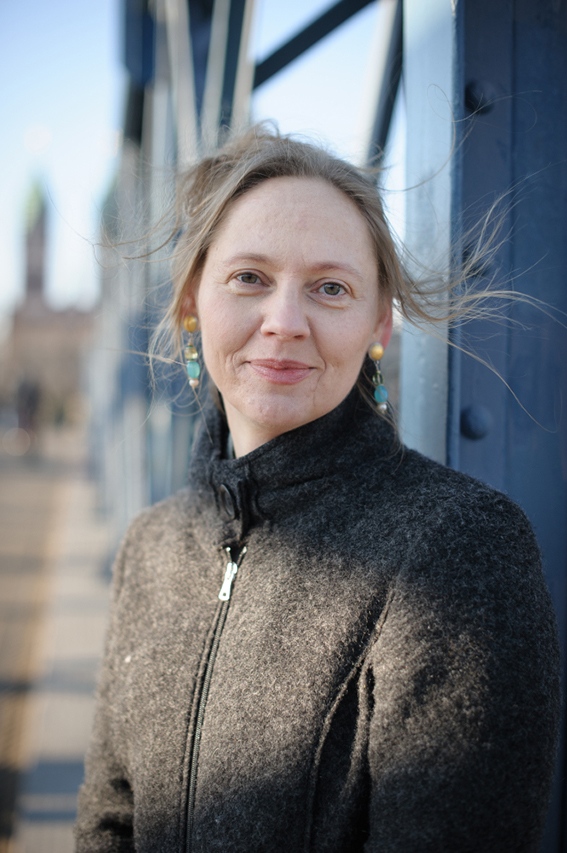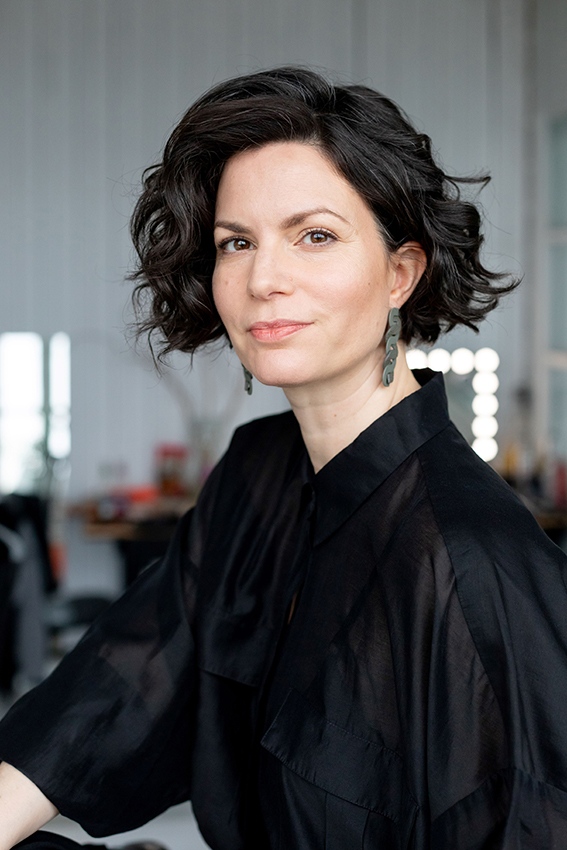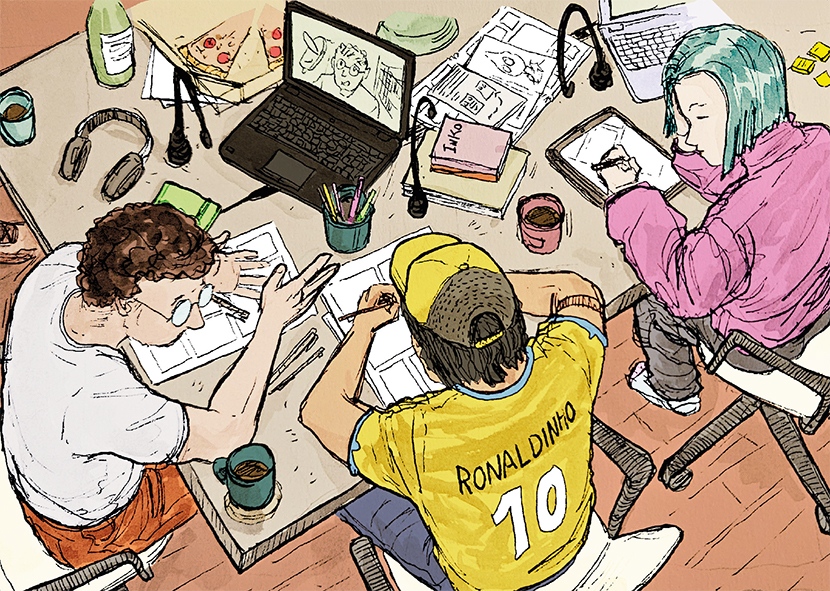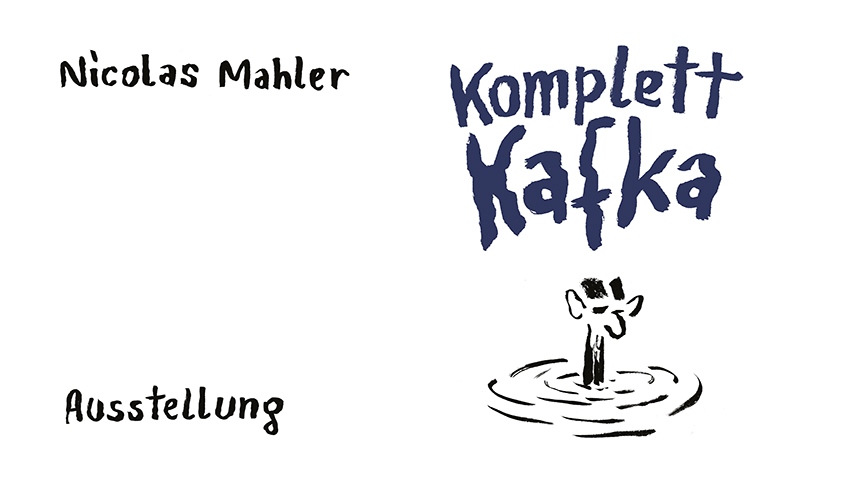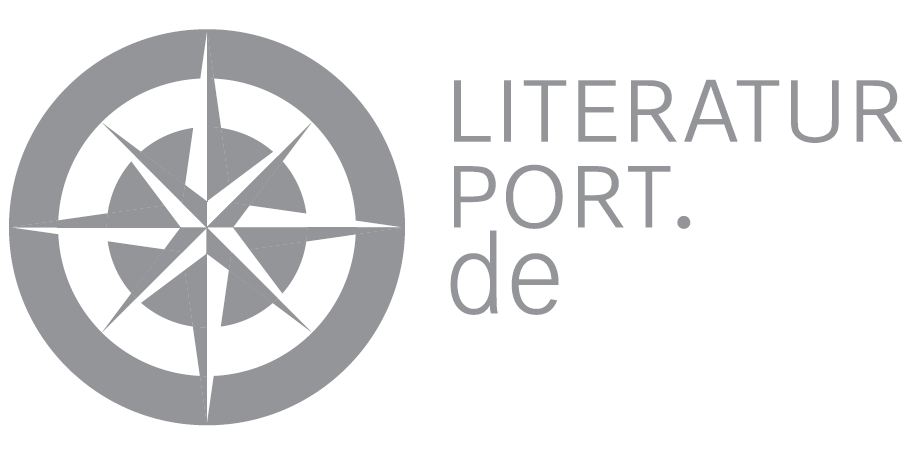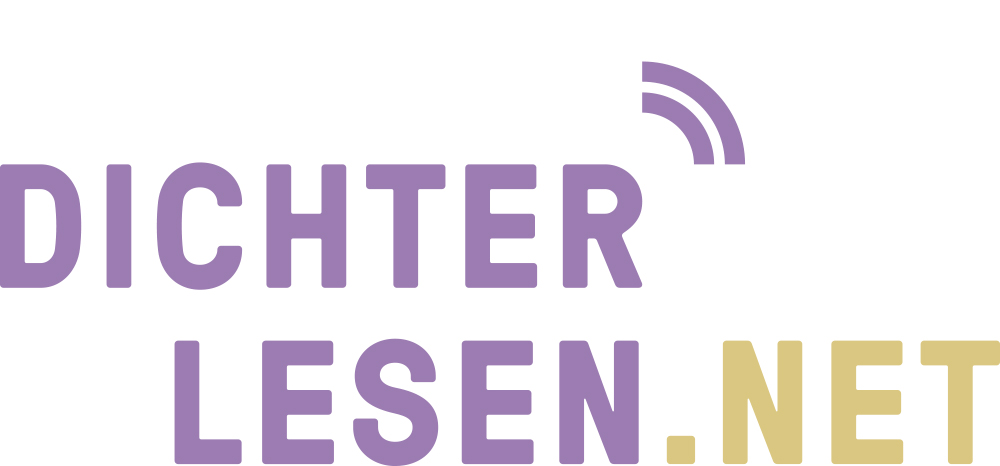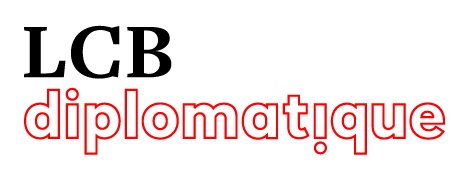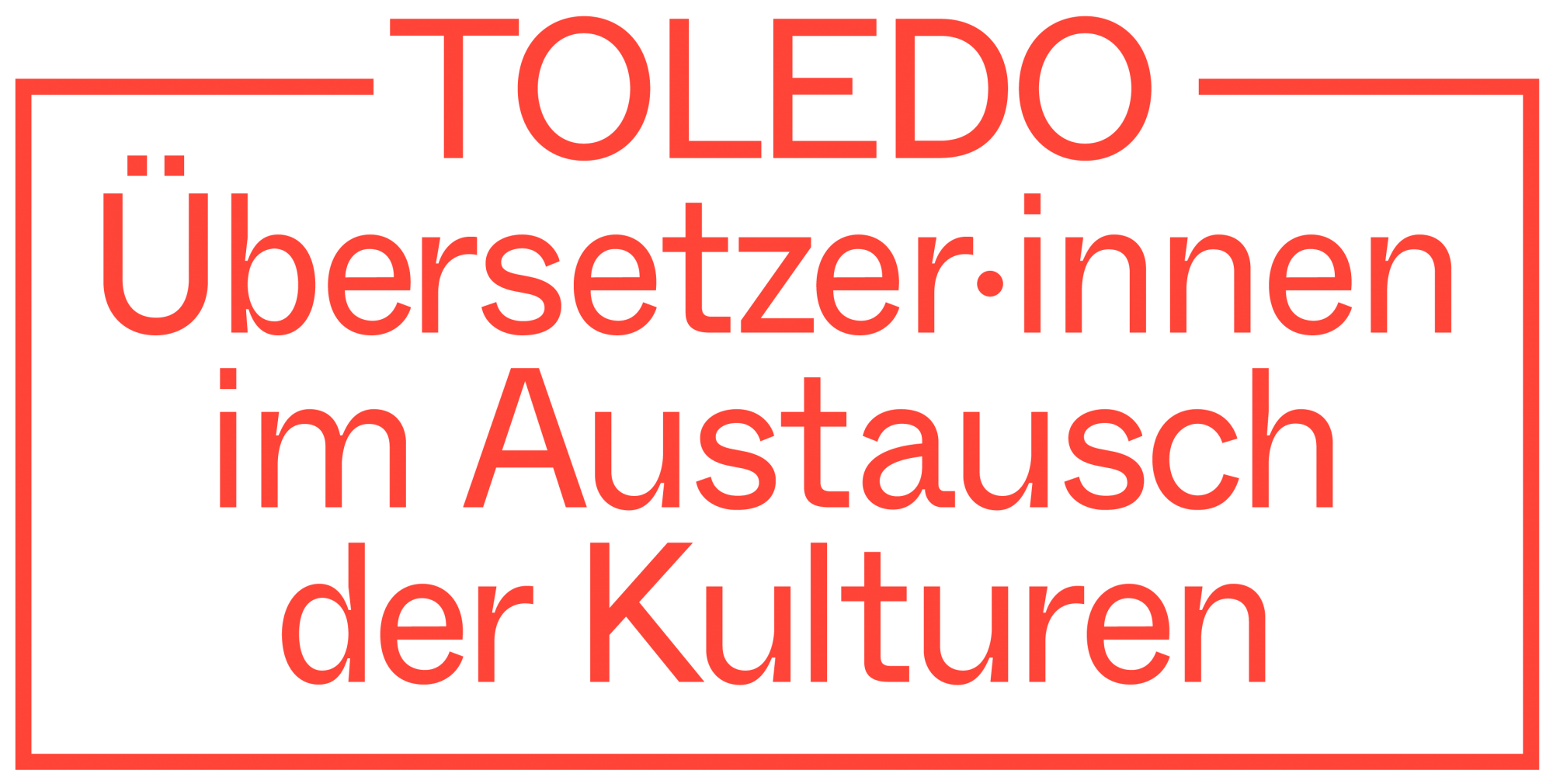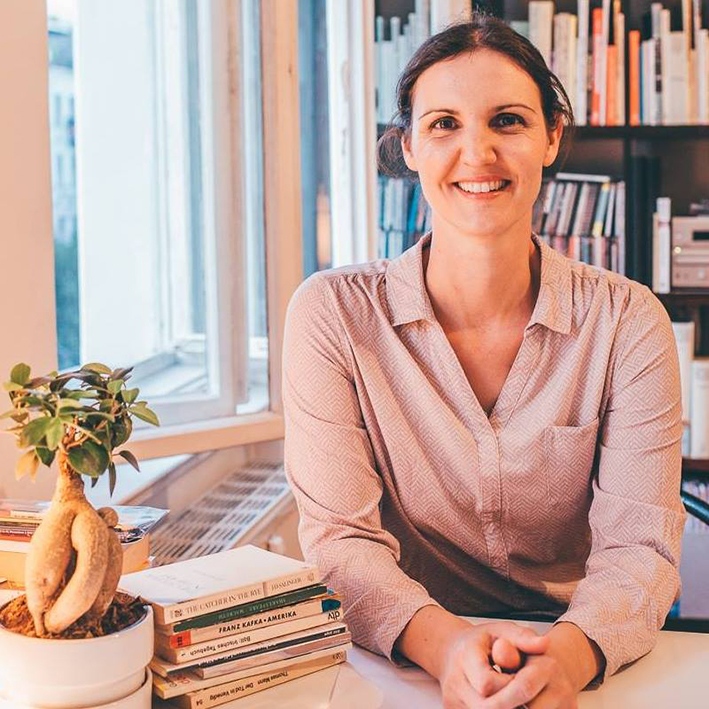Barbara Ivusic: »Hevelyn Farm«
Hevelyn Farm
Extracts from Parts 1 and 2
Evelyn takes methotrexate once a week, usually on a Tuesday. On those nights she can’t stomach a thing so the children and I pig out on our Aldi freezer-favourites until we nearly vomit. Tuesday nights are slow and she’s sluggish—like someone ready to die. Although, she’s not ready to die, but her body doesn’t know that. The doctors say that her body is slowly attacking itself. It has mistaken her for someone else. It’s confused. Evelyn says the trexie untwists the bones that are twisted underneath her skin. She says that one day she’ll turn into a cripple, a monster with hooked fingers and bloated elbows, balls of fluid will surround her knees. I only see what she’s talking about when she strips naked to show me her swollen spots.
‘Helen,’ she presses my atlas like a button and urges me to turn the TV on. She caresses my hair with the tips of her fingers, lets the strands intertwine with the length of her nails, then places her hands on my breasts.
Being stroked while watching infomercials irritates me, but I know it’s the only way to pass the time before her morning pick-me-ups kick in. A window cleaning commercial comes on and a woman starts telling us how to use a squeegee. She says she has the solution for a streak-free finish as she stands in front of her fake Californian home. Palm trees, a pool with a Labrador swimming in it put a smile on Evelyn’s face. She grabs my thigh and starts to massage it. As her hand makes its way up and down my leg, I put the volume up to bury us in a cloud of sound just as the children start whacking a ball against our bedroom door. Evelyn stares at me, tells me to ignore them, the door is locked. She then proceeds to slip her fingers between my legs.
Evelyn’s pain comes up for air every once in a while, and stays for as long as she can bear it. She often says that her body doesn’t serve her anymore. It has forgotten all about her needs. She says that I’m the same, just another thing that has turned against her.
***
It emerges in a cloudy balloon. It’s dead calm until the bitch devours most of the afterbirth and severs the cord herself. She’s careful when she does it, determined to forget that she has teeth. I place the pup under the lamp and Evelyn and I examine every inch of it until it screeches. It’s pied and stocky, with nails that resemble grains of salt. I put it back into the whelping box, but the bitch gets up and lets it fall from her teat like a raindrop, then starts pacing the room. In a few moments, she’s back on her original spot lifting her hind leg, pressing a ball out. It’s mostly white this time, with a few grey spots on its back. I hold its mouth open to look inside. At the roof there is a fissure, a split. Evelyn confirms what it has. A cleft palette. She’s read all about it in a book on breeding. She contorts its mouth into a hole through which the end of a pencil can fit and blows air in. It takes a superficial breath then lays limp in her hand like a fat rat. Evelyn explains the loss in a formal way, as if she’s a vet with decades of experience, but I can see that her eyes are glassy and that she’s forcing herself not to overthink. The bitch claws Evelyn’s knees waiting for her to give the pup back, but Evelyn quickly wraps it up in a towel and takes it out of the room. When she returns, she’s clutching the neck of a bottle of cheap brandy and chipped vintage glasses. She pours the liquid to the rim and we sip, and sip, until we’re dizzy. Our night turns into a celebration which lasts well into the early hours of the morning. Luckily, there are no more deformities, no more animals we can’t bring back to life or fix. With seven healthy pups marbled at the bitch’s teats, the sun bursts through the curtains just as I finish peeling chewy placentas off the blankets. I then go out to find the dead one. It’s still there, bundled up in a towel on the shoe rack. I hear the kettle go off in the kitchen and step outside to start a fire in the bottomless cylinder. Evelyn watches me from the window then cheers me with a mug with a picture of a pumpkin on it just as I wrap the pup up in a stack of paper. When the flames reach the bottom, the air smells like burnt hair. I use a stick to sort the embers from the bones but the head won’t go away. The skin is still mounted on the skull like leather on a shoe. I throw more wood in and light up some hay to speed things up. But it’s a slow process. So slow that I am forced to walk away. I lay down to sleep on the couch in the living room but Evelyn stomps in with a box from the post office. The children surround her greedily. Out come several sky-blue t-shirts with a picture of a Staffordshire Terrier on them. There is a size for each of us. On the back: Hevelyn Farm. I groggily point out the misspelling of ‘heavenly’ but she corrects me.
‘Don’t you realise that it’s our names squashed together?’
***
By the time evening crawls by, we are dressed in our new uniforms on the way to Marco’s to buy offcuts and bones. The children are allowed to choose between a plastic gun and a windup-helicopter. They choose the gun. Marco tells us about a shop he opened on Eureka Creek Road. Evelyn’s excited at the prospect of a bargain and we accelerate through a field of wallabies. We reach a paddock where there are at least a dozen horses roaming. They are exceptionally tall and ripped. The sign we are looking for is unmissable and assured: Puppy Mince $5 for 8 kilograms. A concrete-block building comes into view. Two men sit out the front smoking cigarettes. Evelyn winds down her window and asks for beef. The men look at one another and laugh. We tell the kids to lock themselves in the car as we go inside. Jacob points the toy gun at the glass of the window, taps it twice as if to indicate the coast is clear. The room we walk into is huge and the floor white and slippery. The smell of disinfectant looms. A cash machine sits at the back and we walk up to it hearing just the sound of our footsteps. A woman with large front teeth steps through the roller door on the side. I catch a whiff of blood coming from behind her stocky frame. We pay before we get what we want. She leads us through a room where headless animals hang from hooks. Their skins are peeled back to expose their sinews. Evelyn’s fingers curl over her face. She doesn’t speak to me and her eyes are as cold as the room we are standing in. The woman punches the mincer on and it churns whatever was in it beforehand then throws up a pile of flesh. She goes over to one of the tables and grabs a chunk of meat, confirms the number of kilograms we want and clicks twice. We step aside and wait, in awe of its efficiency. In less than a minute our bargain-buy sits before us; shredded and sealed. A man rolls a cart in and my eyes are stuck to the head of a horse with its fur still intact.
Evelyn says that I am the stronger one and that I should take the 20kg bag back to the car so I hoist it over my shoulder and throw it onto the back of the Ute tray which has warmed enough to cook. I estimate the drive home and reconsider, collect the bag and place it in between the children on the back seat. They eww a few times but settle down as we drive out. We creep over an uncertain wooden bridge back to the main road. Evelyn stops the car to watch one of the men we had seen earlier lead a group of horses behind a shed. Rebecca asks if she can ride one but Evelyn ignores her question, blows smoke out the window.
***
The word ‘love’ still gets thrown around the farm. Love for the children, love for each other, love for the dogs, but we don’t talk about the things that matter, the things that make us weak under the skin. Evelyn has given up all responsibilities and says she needs time to get off whatever she is on while sitting in her room propped up by cushions.
We decide to sleep in separate bedrooms. This way we won’t get tempted to rethread ourselves. We don’t use the word rethread but I think of us that way, like the points of needles that are unfilled and useless to do anything else but prick. She says that I’ve toppled her sky and that she never saw this coming. Whenever she talks about us, she always uses cliches to do with the sea or the weather. She says that I was her anchor, the thing that was holding her in place—but these days, I’m the storm that blew through her house.
I’m disgusted by the smell of puppies and the sight of spaghetti-worms in their poop so I forge their birth papers so that I can sell them sooner. I welcome a family of four at the gate. They have two girls about Rebecca’s age. I’ve dressed my children in clean, ironed clothes. I’ve layered my make-up carefully so that I can become their mother. We stand at the gate, waiting for the family to drive in. I like to think we look trustworthy, reliable, like the kind of people who breed out of love. My children relish in the twenty minutes they get to play with the girls as I collect the envelope and talk about the pup’s health and its nutritional needs. I throw in words like Bordetella Bronchiseptica, Canine Distemper, Parovirus, Kennel Cough so that when they leave there is no doubt in their mind that they’ve made the right decision. As they begin to drive away, Rebecca and Jacob run alongside the car, tapping on the window. The car stops and the twins stick their heads out. The car starts moving again, then halts. I walk over to them and catch Rebecca reciting our address for the girls to write to her. They sit there with bites on their hands and faces as the puppy leaps from their laps.
‘They know where we are,’ I say to Rebecca, but she insists. I catch a glimpse of the father in the side mirror, he’s watching me with an intensity he didn’t have when they arrived. I smile, wave and guide the children back into the house. I hear the TV in Evelyn’s bedroom. She’s watching Murder, She Wrote.
Barbara Ivusic is an editor and emerging author. She has a B.A. (HONS) in English Literature from the University of Sydney. Her work has appeared in international magazines such as Island, Stadtsprachen, Cheat River Review, Glitter and Tears in the Fence as well as anthologies such as »Resilience« (Ultimo Press, Sydney) and »Beyond Queer Words« (Berlin). She’s currently working on her first novel »Hevelyn Farm« and living in Berlin.

